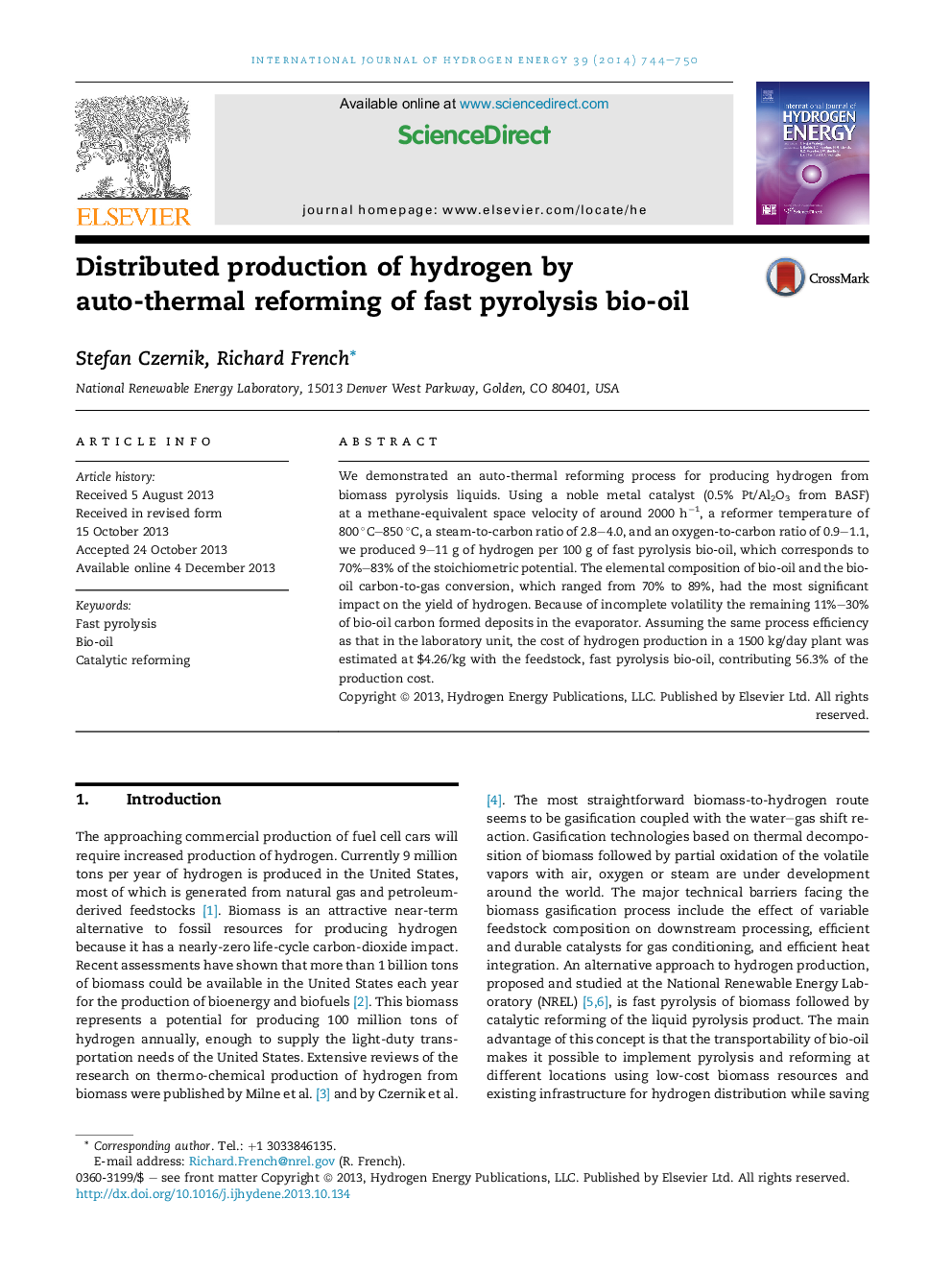| Article ID | Journal | Published Year | Pages | File Type |
|---|---|---|---|---|
| 1276518 | International Journal of Hydrogen Energy | 2014 | 7 Pages |
•Showed bench-scale auto-thermal reforming of four biomass fast pyrolysis liquids.•Bio-oil elemental composition (C, O) has the largest impact on hydrogen yield.•Carbon-to-gas conversion depends on evaporation efficiency and thus oil properties.•Estimated H2 cost at 1500 kg/day scale to be $4.26/kg (≫current US natural gas).
We demonstrated an auto-thermal reforming process for producing hydrogen from biomass pyrolysis liquids. Using a noble metal catalyst (0.5% Pt/Al2O3 from BASF) at a methane-equivalent space velocity of around 2000 h−1, a reformer temperature of 800 °C–850 °C, a steam-to-carbon ratio of 2.8–4.0, and an oxygen-to-carbon ratio of 0.9–1.1, we produced 9–11 g of hydrogen per 100 g of fast pyrolysis bio-oil, which corresponds to 70%–83% of the stoichiometric potential. The elemental composition of bio-oil and the bio-oil carbon-to-gas conversion, which ranged from 70% to 89%, had the most significant impact on the yield of hydrogen. Because of incomplete volatility the remaining 11%–30% of bio-oil carbon formed deposits in the evaporator. Assuming the same process efficiency as that in the laboratory unit, the cost of hydrogen production in a 1500 kg/day plant was estimated at $4.26/kg with the feedstock, fast pyrolysis bio-oil, contributing 56.3% of the production cost.
